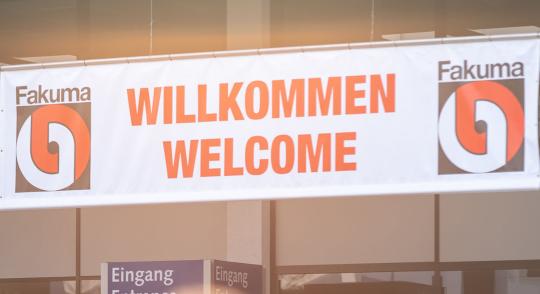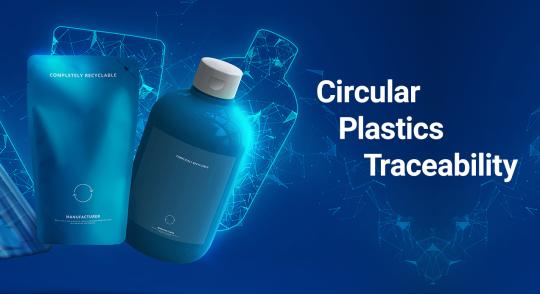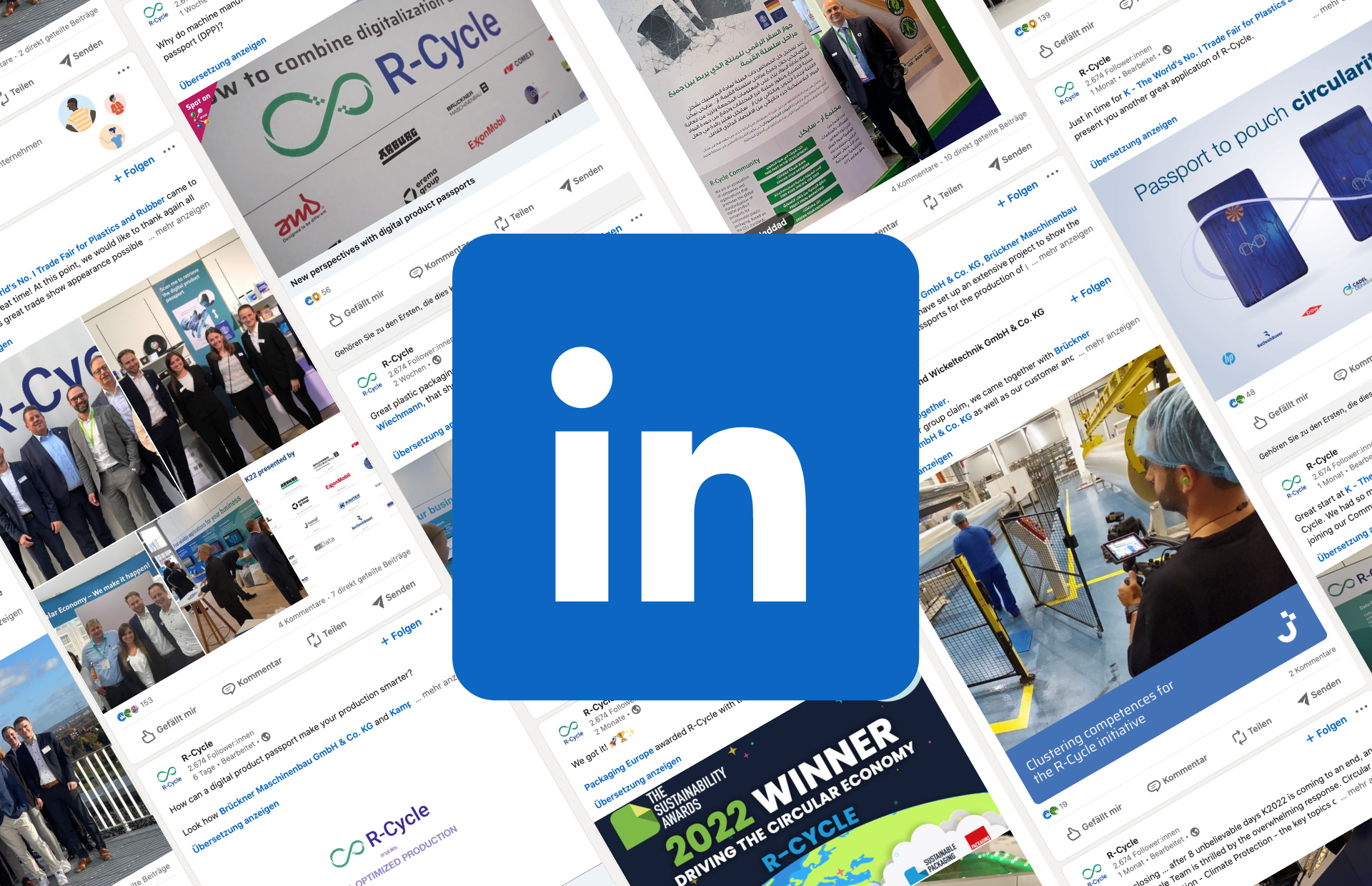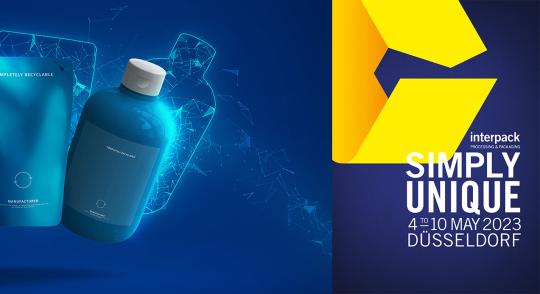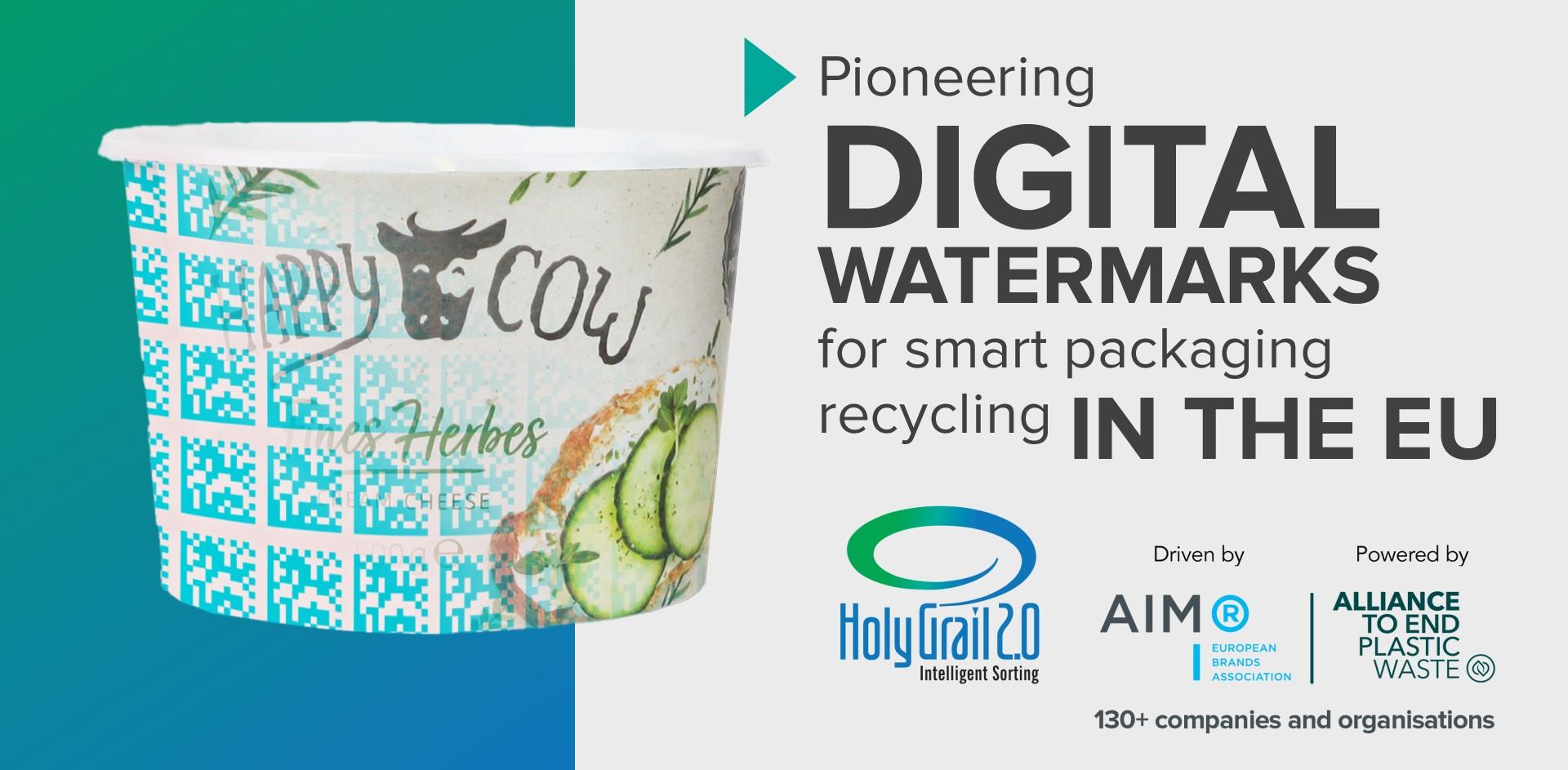

NEXT TESTING PHASE FOR DIGITAL WATERMARKS: Start of semi-industrial trials for intelligent sorting of packaging waste
AIM, the European Brands Association, and the Alliance to End Plastic Waste announced their partnership to drive the next stage of development for intelligent waste sorting under the Digital Watermarks Initiative HolyGrail 2.0. They will work with the City of Copenhagen to conduct the semi-industrial test phase of the pilot. With this milestone, developers move one step closer to precision identification and sorting of plastic packaging waste through digital watermarks, with the potential to revolutionise the sorting and recycling process of plastic packaging.
R-Cycle is an active participant in “HolyGrail 2.0” as part of the “Data Management” work package to advance this initiative with know-how provided by the R-Cycle consortium and to ensure that both approaches complement each other.
Over the next four months, a prototype sorting detection unit will be installed at the Amager Resource Centre (ARC) in Copenhagen, where the trials and demonstrations with around 125.000 pieces of packaging representing up to 260 different stock-keeping units (SKUs) will be held. Engineers will test for several parameters including the speed and accuracy of the system, to ensure its ability to withstand the pressures of full-scale industrial operations. If successful, digitally watermarked products could be introduced to store shelves in Denmark, France and Germany by the first half of 2022 for in-market demonstrations and industrial-scale trials.
Digital watermarks are imperceptible codes, each the size of a postage stamp. They cover the surface of a consumer goods packaging and carry a wide range of attributes such as packaging type, material and usage. Used packaging is collected and scanned on the sorting line with a high-resolution camera which detects and decodes the digital watermark. The packaging is then sorted into corresponding streams, based on specified attributes including food, non-food or polymer types. This leads to more accurate sorting streams and higher quality recyclates to be channelled back into the plastic packaging value chain.
As part of several R-Cycle pilot projects, digital watermarks have already been applied to prototype packaging and linked to so-called digital product passports from the R-Cycle data platform, which contain recycling-relevant properties.
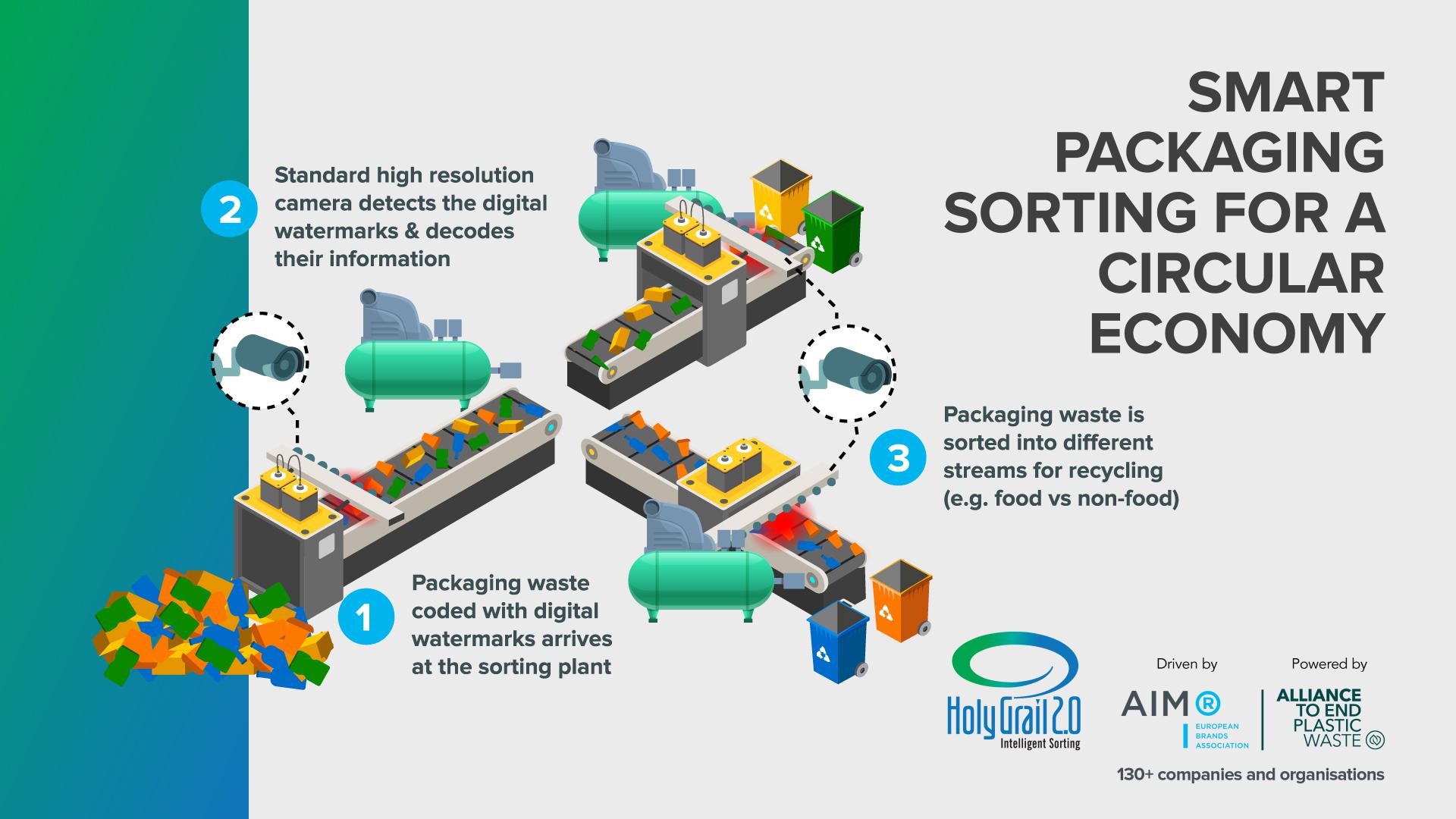

This might also interest you
